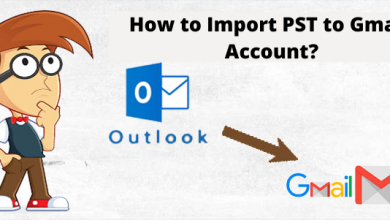Reseller Hosting: All you need to Know

With businesses choosing the online medium to market themselves, web hosting has grown in demand over the last two decades. Business owners are trying to harness this opportunity by starting their own reseller hosting company to either earn a full-time income or supplement their existing earnings. Low initial costs and ease of getting started have made reseller hosting a popular choice among web developers and designers.
Are you looking for ways to augment your existing income? Are you eager to know how what reseller hosting is and how you can convert it into a business opportunity? If yes, keep reading.
What is Reseller Hosting?
Reseller hosting is a business model that allows a hosting provider to rent hard drive and bandwidth to a company/individual who, in turn, rents it to a third-party. Put simply, reseller hosting allows you to offer hosting services to clients under your own brand name. It is a highly sought-after option by aspiring entrepreneurs who want to get into web hosting space or add supplemental services to their brand.
As a reseller, you can enjoy a range of benefits. For instance, you can:
- Sell hosting services under your brand name and thus act as a web hosting company.
- Save money with low initial costs.
- Design hosting plans customized to the needs of your clients.
- Earn significant profit margins without putting in too much efforts.
Selecting the Best Reseller Hosting Company
Selecting a reseller hosting company is akin to choosing a hosting service for your own business. Adequate research and thorough comparison of different hosting providers are essential. Here are a few points that you need to take into account:
- Hosting Requirements: Figure out your own hosting requirements before you step out and compare the different hosting providers. You can, accordingly, shortlist your options.
- Uptime: Before buying a hosting plan, make sure your hosting company offers at least 99% network uptime. Check the server uptime report of the company you are considering to buy services from.
- Customer Support: The hosting company should offer round-the-clock customer support and that too through multiple communication channels.
- Money-back Policy: The host should guarantee a refund if you do not like the service.
- Contract Period: Ask your host about their minimum contract period. Also, inquire about their renewal process.
- Scalability: You don’t know how many clients you may have down the line, say after two or three years. Your hosting provider should offer you the option to scale.
- Value for Money: What you earn out of the reseller business is pivotal to the long-term growth of your business. When choosing a host, carefully consider what features and benefits they offer and what comes for free.
- Server Location: Do you want to serve businesses in a specific location? Or do you want to serve clients on a global level? You can, accordingly, choose a host who has servers in one or more locations.
Setting up a Reseller Hosting Business
When you have chosen a hosting provider, the next step would be to decide on the kind of hosting you want to sell: Linux reseller hosting or Windows reseller hosting. When this is decided, you can select a plan as per your requirement.
The following points kept in mind when setting reseller business:
- Linux vs Windows: You can choose to sell either Linux or Windows hosting depending upon what your clients are looking for. Linux reseller hosting is powered by WHM (web host manager) while its Windows counterpart is powered by Plesk control panel. Both hosting options offer a range of beneficial features.
- CPanel Account: cPanel is a great feature to offer to your clients to help manage their hosting account.
- WHM: WHM is a key tool that allows administrative access to help you manage your client’s accounts. It helps you handle Linux reseller accounts in the most effortless manner.
- Plesk: Plesk is an effective web panel used for managing Windows reseller accounts easily.
- WHMCS: WHMCS is a software suite for automating your web hosting business. It lets you manage signups, provisioning, billing and lends robust support to your business.
- Disk Space: Disc space is the amount of data you can store on the web server. Your host will offer you with a certain amount of disc space. You will need to check if this space will be sufficient.
Investment needed for Reselling Hosting Business
Every business requires some kind of investment to get started. Here are a few things you will need to invest in before starting your reseller business:
- Domain Name: To start any business on the internet, you need to have a domain name. In order to have a domain name, you first need to come up with a unique name (e.g. myhostingbusiness.com) and find if that name is available. You can then purchase the domain from a domain registrar.
- Website: Merely purchasing a domain name is not enough. You need a website to run your reselling business. You can easily create a website using any of the popular CMS platforms including WordPress or Drupal.
- Web Hosting: In order to publish your website on the internet and make it available to online users, you will require a web hosting solution. For a small beginner website, a shared hosting solution will suffice.
- Additional Resources: In order to run your website effectively and make revenue from it, you will need to make your customers happy. For this, you need to have a robust customer support service in place.
Some resources that help you improve your customer support:
- Customer Relationship Manager Software: A CRM software can help you manage and track your customer interactions. HubSpot CRM, Zoho and Freshsales are some cost-effective options available in the marketplace
- Live Chat: With a live chat option in place, it is easy for your clients to communicate. They can get their queries resolved on the instant and don’t need to wait for a response for long hours.
- Customer Care Number: Every reseller hosting business should have a customer care number that functions round-the-clock. Customers always need a person to talk to who can respond to help them with their problems.
- Promotional Costs: To ensure your efforts in setting and running the website pay off, you need to promote it effectively. You can advertise your business through Google AdWords, build a business blog to keep your audience engaged, interact with users on web hosting forums and blogs and convey your message through social media and email marketing.
So, this is our guide on starting a reselling business. If you want to know more, scribble in the comment section below. We will come back with an innovative solution for you. Thanks for reading!




